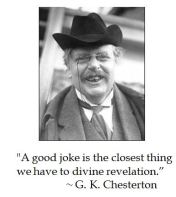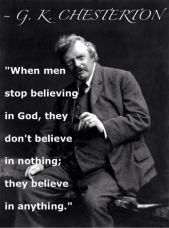First Monday of Advent
Read Amos 6:9-14
(For those of you who have been following along through this whole Advent blog … are you starting to find yourself longing for some grace?!? I sure am. I suppose that’s a good place for the soul to be during Advent…)
Today I’m amazed at just how stubborn and misinformed we can be when it comes to God.
In vs. 9-10, we have this grizzly prophetic anecdote. Because of the judgment of God on their sins, an entire household of ten will be found dead in their house. An uncle will come by to do his duty of cremating the bodies. While searching for bodies and carrying out his task, he will say, “Shhhh! We must not mention the name of the Lord!”
Why would anyone want to be careful not to mention the name of the Lord?
 Perhaps this uncle is in denial. He is stubbornly refusing to believe that what has happened has anything to do with God. Despite the tragedy, he still doesn’t give God his attention.
Perhaps this uncle is in denial. He is stubbornly refusing to believe that what has happened has anything to do with God. Despite the tragedy, he still doesn’t give God his attention.
Or maybe it’s the opposite: Perhaps he knows the LORD is behind the destruction, and he doesn’t want God’s wrath to be kindled any more than it already has been. God has his attention … but his response is misguided.
 Our increasingly secular nation seems to be quoting this Samarian uncle these days. “Shhhh! We must not even mention the name of the Lord.” Do they say this because they stubbornly-yet-genuinely refuse to believe in God’s existence? Or might they, deep down, hold to some semblance of belief, and hate the mention of God because it reminds them that a day of reckoning is coming?
Our increasingly secular nation seems to be quoting this Samarian uncle these days. “Shhhh! We must not even mention the name of the Lord.” Do they say this because they stubbornly-yet-genuinely refuse to believe in God’s existence? Or might they, deep down, hold to some semblance of belief, and hate the mention of God because it reminds them that a day of reckoning is coming?
Either way, it is pathetic. Though God shows Himself strong all around us, let’s seal our mouths, plug our ears, and burn the bodies. Our godless world, at its most ignoble.
What’s wrong at the root is the theology behind the “shhhh.”  God is nothing but good! He created an amazingly beautiful world. Her provides for us miraculously every day. He has saved us time and again (g
God is nothing but good! He created an amazingly beautiful world. Her provides for us miraculously every day. He has saved us time and again (g
arden, flood, exodus, conquest, battles, returns from exile, and ultimately in Jesus). He speaks to us through his prophets. His people
have brought countless practical blessings to the world. And the good news, that God loves, forgives, blesses, empowers and makes alive, continues to take hold of people all over the world, filling them with “inexpressible and glorious joy” (1 Pet. 1:8). That is God! And that is grace! Why would you want to “shhhh” that?
Well, ignoring God doesn’t make Him go away. Israel’s godless insistence on injustice, unrighteousness and self-confidence will result in their being “shattered to pieces.”
 Advent. A time of proclamation. Don’t let the “shhhh” keep you from calling out to Him, and proclaiming His return.
Advent. A time of proclamation. Don’t let the “shhhh” keep you from calling out to Him, and proclaiming His return.
– EO
 For the past 500+ years, the Renaissance, Enlightenment and Scientific Revolution have led us to a naturalistic view of the world: Real truth, natural truth, is determined by scientific experimentation. Miracles don’t mix with this naturalistic approach – hence the term “supernatural.” The backlash of this new rational order is to cast those who believe in the supernatural as superstitious, backward and irrational. If there’s one doctrine we get mocked about more than any, it’s the idea that Jesus is going to come back and make everything right.
For the past 500+ years, the Renaissance, Enlightenment and Scientific Revolution have led us to a naturalistic view of the world: Real truth, natural truth, is determined by scientific experimentation. Miracles don’t mix with this naturalistic approach – hence the term “supernatural.” The backlash of this new rational order is to cast those who believe in the supernatural as superstitious, backward and irrational. If there’s one doctrine we get mocked about more than any, it’s the idea that Jesus is going to come back and make everything right. over our world right now. But, for the most part, the intelligent people of the western world have disassociated these things from God. Instead, we call them “natural disasters”.
over our world right now. But, for the most part, the intelligent people of the western world have disassociated these things from God. Instead, we call them “natural disasters”. o tragedy should be: “This terrible thing is happening – God must be real, and is getting our attention!” Instead, our unbelieving world says: “Because this thing is happening, there must not be a God, because He wouldn’t ‘let’ this happen if He existed.” The louder God screams, the harder our hearts and minds become.
o tragedy should be: “This terrible thing is happening – God must be real, and is getting our attention!” Instead, our unbelieving world says: “Because this thing is happening, there must not be a God, because He wouldn’t ‘let’ this happen if He existed.” The louder God screams, the harder our hearts and minds become.

 things as materialism, scientific determinism, moral relativism, and agnosticism. Since all of these have grown stronger since his day, it makes sense that G. K. and his arguments may have lost favor over the years.
things as materialism, scientific determinism, moral relativism, and agnosticism. Since all of these have grown stronger since his day, it makes sense that G. K. and his arguments may have lost favor over the years. He also defended Christian ideals like fighting for a Biblical anthropology. A popular topic in London during his time was eugenics. Eugenics proposed the termination or sterilization of people with limited mental capacity. Also, leading thinkers in London had begun to think of the poor as a race of people that had failed to produce good offspring. Chesterton was vehemently opposed to these ideas, writing books, essays, and poems in defense of those who were challenged mentally and economically.
He also defended Christian ideals like fighting for a Biblical anthropology. A popular topic in London during his time was eugenics. Eugenics proposed the termination or sterilization of people with limited mental capacity. Also, leading thinkers in London had begun to think of the poor as a race of people that had failed to produce good offspring. Chesterton was vehemently opposed to these ideas, writing books, essays, and poems in defense of those who were challenged mentally and economically.